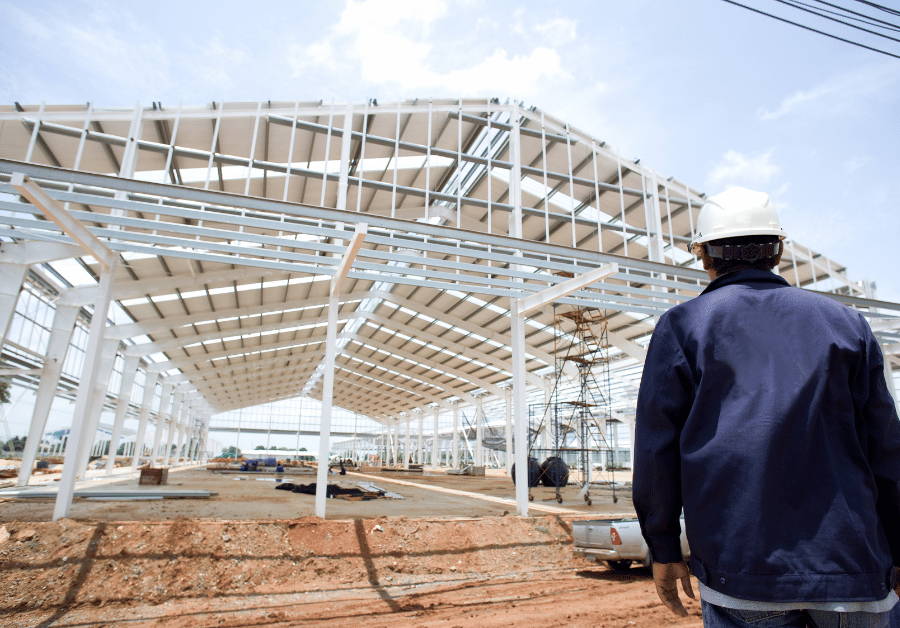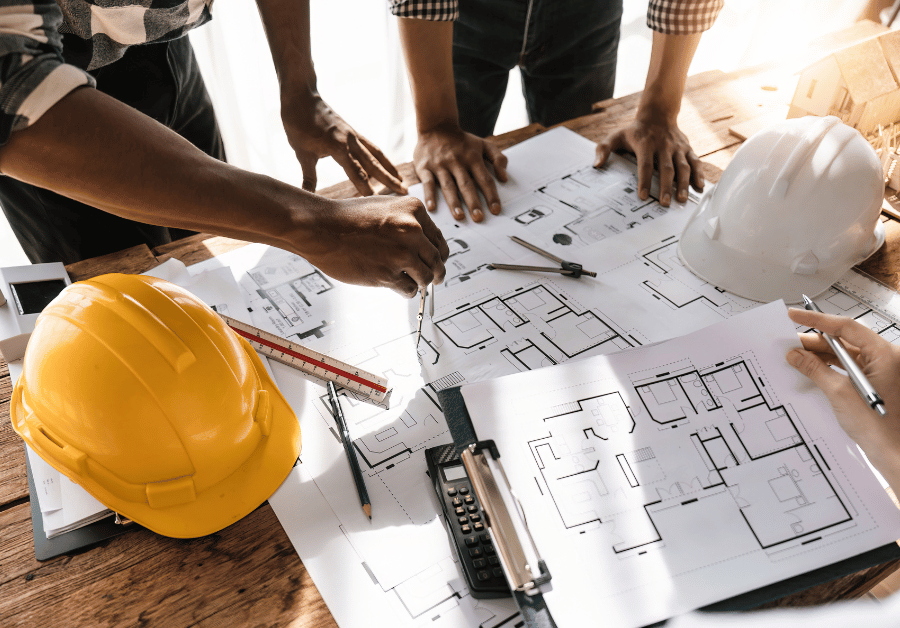Structural Engineer: The Unsung Hero of Australian Building & Design
Ever wondered what keeps a skyscraper standing tall against a fierce Sydney gale, or ensures your new extension in Melbourne won't develop cracks after a few years? The answer often lies with a highly skilled professional: the structural engineer. In Australia's dynamic construction landscape, from the bustling urban centres of Brisbane and Perth to the charming heritage homes of Adelaide and Hobart, the expertise of a structural engineer is not just a luxury, but an absolute necessity.
This comprehensive guide will demystify the world of structural engineering, explaining their critical role in ensuring the safety, stability, and longevity of every building and infrastructure project. Whether you're a homeowner planning a renovation, a developer embarking on a major commercial venture, or simply curious about the forces that shape our built environment, understanding the importance of a skilled structural engineer is key. Get ready to dive deep into the fascinating world of loads, stresses, and innovative designs that underpin modern Australian construction.
What Exactly Does a Structural Engineer Do?

At its core, structural engineering is a specialized branch of civil engineering that focuses on the 'bones' or 'skeleton' of a structure. A structural engineer designs and analyses the load-bearing elements of buildings and other structures. Their primary goal is to ensure that these structures are safe, stable, and can withstand all anticipated loads and environmental conditions throughout their lifespan. Think of them as the guardians of gravity and the masters of material strength.
Their work involves a deep understanding of physics, mathematics, and material science, applied to real-world scenarios. This includes:
- Load Analysis: Calculating forces like gravity (dead loads, live loads), wind, seismic activity, and even snow or water pressure.
- Material Selection: Advising on the best materials (concrete, steel, timber, masonry) for different structural components, considering their properties and cost-effectiveness.
- Design and Optimisation: Creating detailed plans for foundations, beams, columns, walls, and roofs, ensuring they can safely transfer loads to the ground. They also look for efficient designs that save material and cost without compromising safety.
- Compliance: Ensuring all designs meet the stringent requirements of the National Construction Code (NCC) and relevant Australian Standards, which are crucial for any building project in Melbourne, Sydney, or any other Australian city.
- Site Inspections: Overseeing construction to ensure the structural elements are built according to design specifications and identifying any issues during the build process.
In essence, a structural engineer is the professional who ensures your building won't collapse, deform excessively, or fail under stress. Their expertise is fundamental to public safety and the successful completion of any construction or renovation. For any new building or significant alteration, particularly in areas prone to specific environmental challenges like cyclonic winds in parts of Queensland or seismic activity, the input of a local structural engineer is indispensable.
Why You Absolutely Need a Structural Engineer for Your Australian Project
While some minor works might not explicitly require a structural engineer by law, engaging one offers immense value and peace of mind. Here's why their engineering services are non-negotiable for most significant projects across Australia:
1. Ensuring Safety and Stability
This is the paramount reason. A structural engineer designs structures to safely carry all expected loads, preventing catastrophic failures. They consider everything from the weight of the building itself to the furniture, occupants, and environmental forces. Without their input, you risk a structure that is unstable, unsafe, and potentially life-threatening.
2. Navigating Australian Building Codes and Regulations
Australia has strict building codes (the NCC) and various state-specific regulations. A qualified structural engineer is intimately familiar with these requirements, ensuring your structural design is compliant from the outset. This avoids costly delays, redesigns, and potential legal issues down the track. Whether it's a residential structural extension in Perth or a commercial fit-out in Adelaide, compliance is key.
3. Optimising Design and Cost Efficiency
While it might seem like an added expense, a good structural engineering consultant can actually save you money. They can optimise material usage, recommend more efficient construction methods, and identify potential issues early in the design phase, preventing expensive rectifications during construction. Their expertise in structural systems ensures you get the most robust and economical solution.
4. Problem Solving and Remediation
Beyond new builds, structural engineers are critical for addressing existing problems. Have you noticed concerning crack inspections on your walls? Are you worried about subsidence or a deteriorating foundation? A structural engineer can diagnose the cause of structural issues, assess the damage, and design effective remediation solutions. This is especially vital for older homes in established areas like inner Melbourne or Sydney.
5. Insurance and Resale Value
Having a project designed and certified by a professional structural engineer provides a layer of assurance for insurance purposes and significantly boosts the resale value of your property. It demonstrates that the building is sound, safe, and built to professional standards.
When Do You Need a Structural Engineer? Common Scenarios in Australia
It's not always obvious when to call in a structural engineer. Here's a helpful guide to common scenarios where their expertise is essential:
| Project Type / Scenario | Why a Structural Engineer is Needed | Examples |
|---|---|---|
| New Building Construction | Designing foundations, load-bearing walls, roofs, and overall stability for the entire structure. | New residential home, commercial building, industrial facility. |
| Major Renovations & Extensions | Altering load-bearing walls, adding new levels, significant roof changes, or large openings. | Adding a second storey, removing a wall between living areas, building a large deck or balcony. |
| Structural Damage Assessment | Investigating causes of cracks, subsidence, water damage, fire damage, or storm damage and recommending repairs. | Diagnosing extensive cracking in walls, assessing flood-damaged foundations, post-bushfire structural integrity checks. |
| Retaining Walls & Earthworks | Designing and certifying retaining walls, especially those over 1 meter high or supporting significant loads. | Terraced landscaping, basement excavations, boundary retaining walls. |
| Swimming Pools (In-ground) | Designing the pool shell and surrounding structures, especially on sloped sites or near existing buildings. | New concrete or fibreglass pools, particularly on challenging soil conditions. |
| Solar Panel Installations (Large Scale) | Assessing roof capacity to safely support the added weight of large solar arrays. | Commercial solar farms, large residential rooftop installations. |
| Pre-Purchase Inspections | For peace of mind when buying an older property or one with visible structural concerns. | Buying a heritage home in Hobart, a property with visible wall cracks. |
| Change of Use for a Building | Assessing if an existing structure can safely handle new loads or functions. | Converting a warehouse to apartments, an office to a retail space. |
This table highlights that a structural engineer is not just for grand commercial projects but plays a vital role in everyday residential projects too. From a simple deck addition to complex civil structural developments, their guidance is indispensable.
The Structural Engineer's Role in Different Australian Projects
The scope of work for a structural engineer can vary significantly depending on the project type. Let's explore their contributions across different sectors:
Residential Structural Engineering
For homeowners, a residential structural engineer is your go-to expert for ensuring your home is safe and sound. This includes:
- New Home Designs: Working with architects to design the entire structural framework, including foundations (slab on ground, suspended floors), wall systems, roof trusses, and connection details. This is common for new builds across the growth corridors of Sydney, Melbourne, and Brisbane.
- Home Extensions and Renovations: Assessing existing structures before modifications, designing new load-bearing elements (e.g., steel beams to open up spaces), and ensuring the new additions integrate seamlessly and safely with the original building.
- Defect Rectification: Investigating issues like movement, settlement, dampness affecting structures, or crack inspections, and providing detailed reports and repair solutions. Many structural engineering consultants in Melbourne specialise in this area.
- Retaining Walls: Designing stable and compliant retaining walls for sloping blocks, a common feature in many Australian suburbs.
Their involvement ensures your dream home or renovation doesn't turn into a structural nightmare. Many firms, like those specialising in residential structural engineering Melbourne, offer tailored services for domestic properties.
Commercial and Industrial Structural Engineering
When it comes to larger-scale developments, the complexity exponentially increases. A commercial structural engineer deals with:
- High-Rise Buildings: Designing complex concrete and steel frames, core structures, and deep foundations for skyscrapers and large apartment complexes in city centres like Sydney and Melbourne.
- Retail and Office Spaces: Ensuring large open-plan areas have adequate support, designing mezzanines, and assessing floor loadings for different uses.
- Warehouses and Industrial Facilities: Designing robust structures capable of supporting heavy machinery, large spans for storage, and specialised foundations for industrial equipment.
- Infrastructure Projects: While often involving broader civil engineering, structural engineers are crucial for bridges, tunnels, water treatment plants, and other public infrastructure that forms the backbone of our cities.
These projects demand highly specialised knowledge, often involving advanced analytical tools and collaboration with a broader team of engineering consultants.
Specialised Structural Engineering Services
Beyond the common residential and commercial projects, structural engineers also provide highly specific services:
- Forensic Structural Engineering: Investigating structural failures and providing expert testimony in legal cases.
- Facade Engineering: Designing and analysing the external skin of buildings, ensuring it can withstand wind loads and other environmental factors.
- Heritage Structures: Assessing and designing interventions for historical buildings, preserving their integrity while ensuring modern safety standards.
- Sustainable Design: Integrating eco-friendly materials and methods into structural designs to reduce environmental impact.
The breadth of structural engineering services available means there's an expert for almost any challenge your project might face.
Choosing the Right Structural Engineer in Australia: What to Look For

Selecting the right structural engineer is crucial for your project's success. Here are key factors to consider, especially when looking for professionals in Sydney, Melbourne, Perth, Brisbane, Adelaide, or Hobart:
- Qualifications and Registration: Ensure they are appropriately qualified (typically a Bachelor's or Master's degree in structural or civil engineering) and registered with the relevant state board or Engineers Australia. Professional Engineer (PE) registration or RPEQ (Registered Professional Engineer of Queensland) are important indicators of competence.
- Experience: Look for a structural engineer with a proven track record in projects similar to yours. A residential structural engineer Melbourne with extensive experience in local soil conditions will be invaluable for a home renovation in the area. Ask for case studies or references.
- Local Knowledge: Building codes and council requirements can vary slightly between states and even local government areas. A structural engineer familiar with the specific regulations in your city (e.g., engineer Melbourne, structural engineer Sydney) will ensure a smoother approval process.
- Insurance: Verify that the engineering consultants carry professional indemnity insurance. This protects you in case of errors or omissions in their design.
- Communication and Collaboration: A good structural engineer will communicate clearly, explain complex concepts in an understandable way, and work effectively with your architect, builder, and other stakeholders.
- Fees and Scope of Work: Get a clear, written proposal detailing the scope of services and associated fees. Avoid hourly rates without a clear estimate.
Finding a trusted and reliable structural engineer can make all the difference, transforming a potentially stressful project into a smooth and successful one. Don't hesitate to ask questions and compare options.
Common Misconceptions About Structural Engineers
Despite their critical role, there are often misunderstandings about what a structural engineer does:
- "My architect handles all the structural stuff." While architects design the aesthetic and functional aspects of a building, they rely on structural engineers for the technical design of the load-bearing elements. They work hand-in-hand, but their roles are distinct.
- "It's just about big buildings." As discussed, residential structural engineering is a huge part of their work. Even small changes to a home can have significant structural implications.
- "They just make things expensive." An experienced structural engineer can often find more efficient and cost-effective solutions for your project, saving you money in the long run by preventing structural failures and expensive rectifications.
- "I only need one if something goes wrong." While they are crucial for remediation (e.g., for crack inspections), their most valuable contribution is in preventative design, ensuring things are built right from the start.
- Get your quotes from structural engineer in your area now.
Partnering with the Right Structural Engineer for Your Australian Project
From the foundational stability of a new home in the outer suburbs of Adelaide to the complex load calculations for a high-rise in Sydney, the role of a structural engineer is undeniably vital. They are the unsung heroes who combine scientific principles with practical application, ensuring that our buildings and infrastructure are not only beautiful and functional but, most importantly, safe and resilient. Their expertise in structural engineering services is the bedrock upon which successful Australian construction projects are built.
Whether you're embarking on a dream renovation, planning a new commercial development, or need an expert opinion on existing structural concerns like crack inspections, don't underestimate the value of a qualified structural engineer. Investing in their expertise early in your project will save you time, money, and stress in the long run, guaranteeing compliance, safety, and peace of mind.
Ready to Connect with Trusted Structural Engineers Across Australia?
At Get 3 Quote, we understand the importance of finding reliable and skilled professionals for your construction needs. Our mission is to make it easy for you to connect with experienced structural engineers in Melbourne, Sydney, Perth, Brisbane, Adelaide, Hobart, and beyond. We simplify the process:
- Tell us what you need: Fill out our simple form and describe your project, whether it's for residential structural engineering, a commercial venture, or a specific inspection.
- Get quotes from professionals: Receive up to 3 detailed quotes from verified local structural engineers and engineering consultants.
- Choose the best match: Compare quotes, reviews, and profiles to find the perfect professional for your job.
Don't leave the structural integrity of your project to chance. Let Get 3 Quote help you find the expert structural engineer you need, ensuring your building stands strong for years to come.
